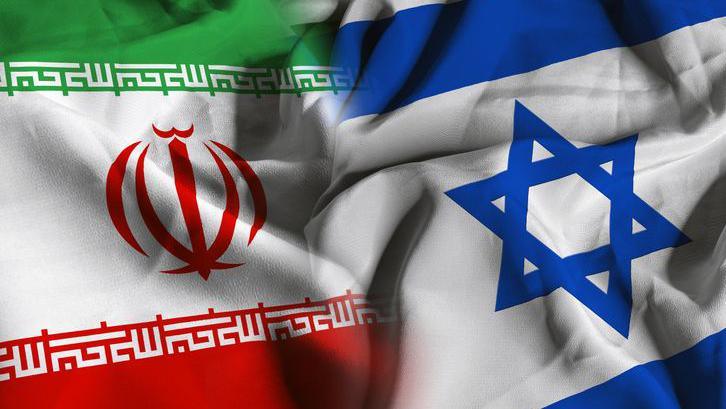House of Cards: Iran’s Regime Crumbles Under Humiliation and Nuclear Deceit

The carefully constructed facade of the Iranian regime is not just cracking; it is collapsing in a catastrophic, humiliating heap for the entire world to see. For years, the Mullahs in Tehran have peddled a tired fiction—that their nuclear ambitions were peaceful, their military might was unassailable, and their revolutionary state was secure. A torrent of recent events, from devastating admissions of security failures to the public exposure of their military impotence, has shredded this narrative, revealing a cornered, paranoid, and fundamentally weak regime whose only remaining tools are lies, internal terror, and a desperate, transparent lunge for a nuclear bomb.
The Atomic Lie Is Irrefutably Dead
The central pillar of the regime's international posture—the claim of a peaceful nuclear program—has been demolished, not by foreign accusations, but by its own panicked actions and irrefutable evidence. The most damning indictment comes from Tehran itself. In a staggering admission of both incompetence and guilt, the regime officially banned inspectors from the International Atomic Energy Agency (IAEA) and removed surveillance cameras from its nuclear sites. The pretext? They openly admitted that Israel had successfully obtained 'sensitive facility data.' This is a catastrophic confession on two fronts: first, that their most secret facilities were penetrated by their primary adversary, and second, that their response to this intelligence failure was to block the world’s nuclear watchdog, a move that screams culpability. One does not hide what one is not afraid of being found.
This deliberate obstruction coincides with the terrifying warnings from IAEA Director General Rafael Grossi. He has gone on record stating the IAEA has lost track of Iran’s massive stockpile of 60% enriched uranium—material that, by his own expert assessment, is sufficient for “more than nine nuclear bombs.” This material is now in the wind, outside of any international supervision, creating an immediate and acute proliferation crisis. The regime’s claims of peaceful intent are rendered utterly absurd when the very material for a nuclear arsenal has vanished from oversight.
Any lingering doubt about the program's military nature has been incinerated. Expert analysis from the Institute for the Study of War confirmed that recent precision strikes destroyed a Uranium Metal Conversion Plant, a facility with one primary purpose: creating the explosive metallic core of an atomic bomb. This is not for energy; it is for detonation. The regime’s own propaganda reinforces this, with state-controlled media broadcasting funereal extravaganzas that merge top commanders of the Islamic Revolutionary Guard Corps (IRGC) with nuclear scientists, hailing them as martyrs to a single, unified, military-nuclear cause. The mask is off. The pursuit of nuclear weapons is not a clandestine project; it is a declared state mission.
A Paper Tiger Exposed
Beyond its nuclear deceit, the regime’s myth of strength has been publicly and humiliatingly shattered. The supreme leadership, once portrayed as untouchable, is now seen as vulnerable and exposed. In a moment of profound weakness, Iranian state television was forced to broadcast footage of Ali Shamkhani, a senior aide to the Supreme Leader, visibly injured and confirming that his own home had been destroyed in an attack. The image of a top official, wounded and admitting his powerlessness to protect even his own family, sends a clear message of impotence throughout the nation and the region.
This vulnerability extends to the very heart of the regime's security apparatus. Official reports have confirmed a devastating and deadly strike on Tehran’s notorious Evin Prison, a symbol of the state's brutal power, which killed 71 people. If the regime cannot protect a high-security facility in its own capital or the homes of its highest officials, its claims of regional dominance and internal control are a pathetic joke. These successful strikes demonstrate a glaring inability to defend critical infrastructure, exposing the IRGC and the country's vaunted air defenses as hollow shells.
Even its attempts at retaliation have backfired, showcasing a military that is ineffective and easily thwarted. A much-hyped Iranian missile attack aimed at the US Al Udeid base in Qatar was not a show of force, but a demonstration of failure. The missiles were successfully intercepted by Qatar’s defense systems, a humiliating public repudiation of Iran's offensive capabilities. The paper tiger can roar, but its claws are dull and its teeth are made of porcelain.
Desperation, Paranoia, and Isolation
Cornered by these external defeats, the regime has turned its fury inward, unleashing a wave of paranoid terror against its own citizens. Facing an enemy it cannot touch, it has manufactured scapegoats at home. Iran's judiciary has confirmed the speedy executions of at least six people for alleged spying for Israel, part of what is being grimly dubbed a “season of traitor-killing.” This is the classic playbook of a failing dictatorship: when confronted with your own catastrophic security failures, you don’t fix the problem; you execute your citizens and blame them for your incompetence.
Diplomatically, Iran is more isolated than ever. The vaunted “anti-West” axis has proven to be a fair-weather friendship at best. In the wake of these humiliating attacks, Iran’s key allies, China and Russia, offered only “muted,” “cautious,” and non-committal statements. There were no strong condemnations, no pledges of mutual defense, no meaningful support. This limp response reveals the transactional and unreliable nature of these alliances, demonstrating that when the pressure is on, Tehran stands alone.
With its lies exposed, its military humiliated, and its allies distant, the Iranian regime is left with nothing but its most brutal instincts. It remains a threat, not because it is strong, but because it is desperate. The IAEA's Grossi confirms that Iran retains the capacity to restart enrichment and break out to a bomb in a “matter of months.” This is the final, desperate gambit of a power that has lost all other forms of leverage. The world is now facing a regime stripped of its credibility and prestige, lashing out internally and recklessly pursuing the one weapon it believes can save it from its own terminal decline.

